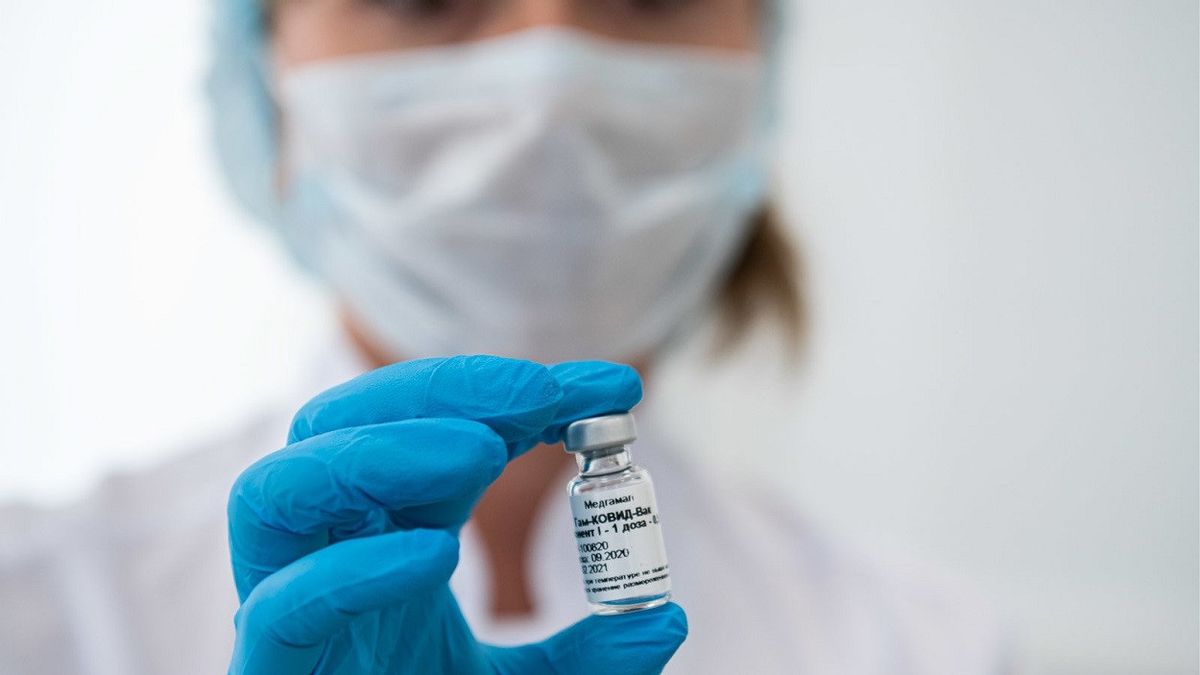JAKARTA - European drug regulators on Wednesday refrained from making recommendations on schedules for mixing a COVID-19 vaccine with doses from different manufacturers, saying it was too early to confirm whether and when additional booster shots would be needed.
However, the European Medicines Agency (EMA) says two doses of two-shot coronavirus vaccines, such as those from Pfizer, AstraZeneca and Moderna, are needed to protect against the fast-spreading Delta variant of the coronavirus.
Meanwhile, the World Health Organization (WHO) previously warned individuals not to mix doses of the COVID-19 vaccine, saying the decision should be made by health authorities.
In an effort to address rising infections and vaccine shortages, countries are testing whether giving a second dose, different from the first, can increase immunity in humans and bridge the gap between the availability of a COVID-19 vaccine.
The EMA does not make definitive recommendations for changing doses, but advises countries to consider several conditions.
"To respond to this need and increase vaccination coverage, countries may adapt their strategies. Based on the epidemiological situation and circulation of the variant, as well as growing evidence of the effectiveness of the vaccine against the variant," the EMA said in a statement.
An Oxford study last month found that giving Pfizer a second dose four weeks after the first dose of AstraZeneca produced a better immune response than giving two doses of AstraZeneca vaccine.
Meanwhile, the European Center for Disease Prevention and Control (ECDC) estimates the Delta variant will account for 90 percent of strains circulating in the European Union by the end of August.
The variant, first identified in India, has caused a spike in cases worldwide and delayed economic recovery plans.
"We have always followed the science and expertise and evaluations of the ECDC and EMA. However, we must also be ready and prepared if (or) when booster injections may be needed," said a European Commission spokesman.

The EMA is also actively monitoring the rare but serious side effect of the COVID-19 vaccine, and on Wednesday revealed it had assessed nine cases of immune thrombocytopenia (IT) following vaccination with the Moderna injection.
While it said no 'clear causal relationship' could be made between the two, the EMA will continue to monitor cases, stressing that the benefits of the vaccine continue to outweigh the risks.
The EMA in March started a review of IT, an autoimmune condition with low blood platelet levels that can cause bruising and bleeding in people who have received AstraZeneca, Pfizer and Moderna injections. Moderna did not immediately respond to a request for comment.
Earlier, the World Health Organization (WHO) said on Wednesday that the Delta variant is likely to become the dominant variant globally over the coming months.
Last Monday, WHO chief scientist Soumya Swaminathan advised individuals not to mix vaccines, saying such decisions should be left to public health authorities.
"This is a slightly dangerous trend. It will be a chaotic situation, if countries start to decide when and who their citizens will take the second, third and fourth doses," he explained.
Swaminathan called mixing a 'data-free zone', although he later clarified his statement in a post on Twitter.
"Individuals should not decide for themselves, public health agencies can, based on available data. Data from mixed and compatibility studies of different vaccines are pending, immunogenicity and safety of both need to be evaluated," he wrote.
To note, the WHO Strategic Advisory Group of Experts on vaccines said in June, Pfizer vaccine could be used as a second dose after the initial AstraZeneca dose, if the latter is not available.
The English, Chinese, Japanese, Arabic, and French versions are automatically generated by the AI. So there may still be inaccuracies in translating, please always see Indonesian as our main language. (system supported by DigitalSiber.id)













